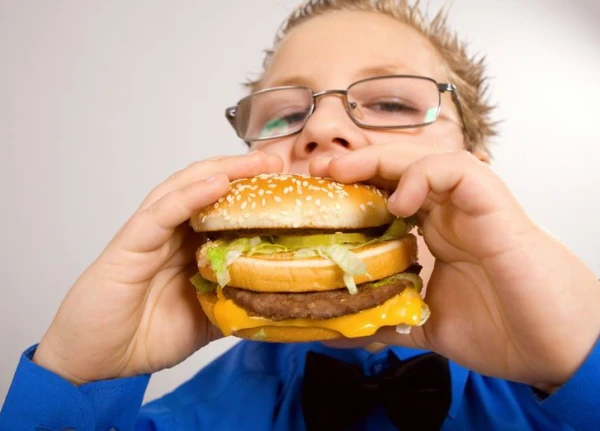
It seems that a burger with fries or pizza for dinner is a harmless children's joy. But if such dishes appear in the diet regularly, they change not only eating habits but also brain function. Scientific studies increasingly indicate that ultra-processed food causes addiction comparable to nicotine. Tasty, convenient, quick — and this is the trap. It is especially dangerous that the brain gets used to this taste from childhood, reinforcing the pattern 'fast food equals pleasure.' Over time, this can lead to chronic stress and compulsive overeating. Nutritionist Elena Mukhina explained how the mechanism of addiction arises.
How Addiction Forms
The combination of salt, fat, and fast carbohydrates in sausages, nuggets, and pasta with sauce activates the same pleasure centers as nicotine or sugar. The brain remembers the dopamine spike and demands repetition. "Gradually, the child loses interest in natural food: apples and porridge seem 'tasteless' because they do not provide the usual pleasure. Meanwhile, the dopamine system starts to work in vain — more and more stimuli are needed for pleasure, and a person literally becomes addicted to the taste of processed food. It is much harder to regain taste sensitivity later than it seems," warns the doctor.
Why the Body Stops Feeling Full
Semi-finished products quickly raise blood glucose levels and then cause a sharp drop. An hour later, one wants to eat again — preferably something fatty and salty. This pendulum disrupts the natural signals of hunger and satiety, causing children to overeat without even feeling pleasure from food. Moreover, fast food is often eaten on the go, without focusing on the taste, which means the brain simply does not register that the body has already received enough. This forms a habit of eating not out of hunger, but automatically, driven by emotions.
What Happens to the Microbiome
Regular fast food changes the composition of intestinal bacteria. Beneficial strains responsible for vitamin absorption and strong immunity are displaced by "lazy" microorganisms that prefer easy calories and processed fats. The result is weak protection, lethargy, and increased anxiety. Disruption of the microbiome also affects mood, as up to 90% of serotonin is produced in the gut. Children become irritable, sleep worse, and more often complain of fatigue or feeling unwell.
How Metabolism Suffers
A lack of fiber and an excess of trans fats slow down metabolism, reduce insulin sensitivity, and increase the risk of obesity. "The body stops responding flexibly to physical activity and stress. Even at a normal weight, this can manifest as constant fatigue and energy spikes. Moreover, fast food does not provide vitamins and minerals, and the body seems to be starving even while receiving an excess of calories. This internal deficiency can affect growth, skin condition, and concentration," states the expert.
What to Do Instead of Bans
The main thing is not to turn the topic of food into a battlefield. Gradual replacement works better than bans: sausages for baked chicken, sauce for homemade tomato, pasta for whole grain pasta. Let the child help with cooking, try new things, and choose for themselves. When the taste of natural food returns, the dependence on fast food loses its power. It is helpful to turn the cooking process into a game: choosing products, trying unusual spices, decorating the plate. Then food becomes a joy again — without chemicals and the habit of dopamine fuel.













